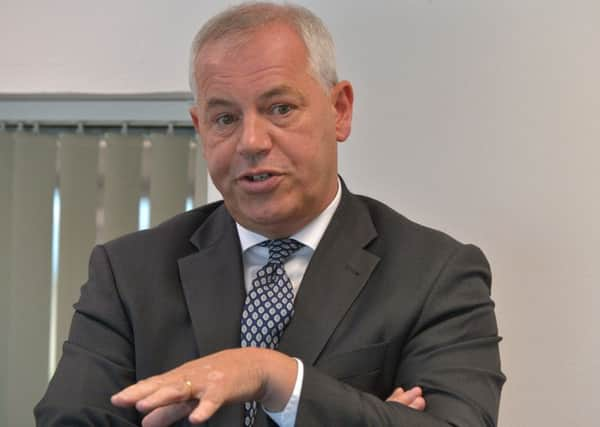Brexit has already delayed inward investment to ten border councils serving a million Irish people: John Kelpie


Mr. Kelpie told the Seanad Brexit committee how councils on both sides of the border were fearful of the damage Brexit might wreak on trade, migration, agrifoods, fisheries and investment.
He said that while there has been considerable economic, physical, environmental and social progress over the past decade, the border region, still lagged behind “national or regional averages in terms of productivity, labour participation rates and household income”.
And Brexit will only make matters worse, he warned.
Advertisement
Hide AdAdvertisement
Hide Ad“It is our contention that Brexit will impact across the piece on matters such as trade, migration and particular sectoral areas such as agrifoods and fisheries and also very much on inward investment.
“We are already beginning to see a very significant impact in terms of delayed investment. In particular, we forecast an impact on trade between the two parts of the island,” said Mr. Kelpie.
In terms of trade with the European Union, Mr. Kelpie, noted how Northern border counties are far more exposed to Brexit than the North as a whole.
“Approximately £2.20 of every £10 in external sales generated by companies on the Northern side of the border goes to the EU market,” he said.
Advertisement
Hide AdAdvertisement
Hide Ad“That is a significantly larger percentage than that for the rest of Northern Ireland (NI) which only accounts for 10 per cent. Some 22 per cent of all sales in Northern border counties are into the Republic of Ireland (RoI) and the rest of the European Union. The RoI is the second biggest external market for firms in border areas in the North,” he added.
Thus, as free a trade as possible between north and south is vital for the border economy, he said.
“A key for communities living along the border corridor is ensuring we will not have an economic border post-Brexit, that NI producers will have tariff free access to the RoI market and the Single European Market, that we will retain the right for NI producers to freely access the wider GB market, that RoI producers will have free access to the GB market which accounts for over €1 billion worth of business per week.”